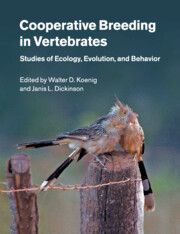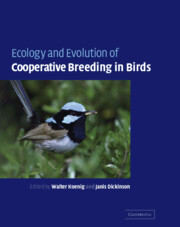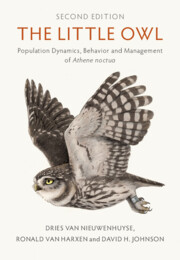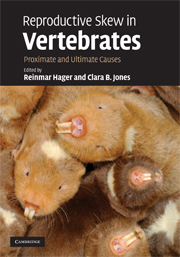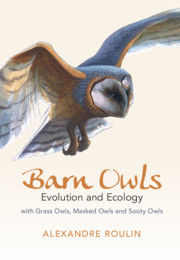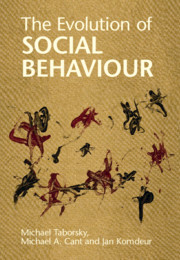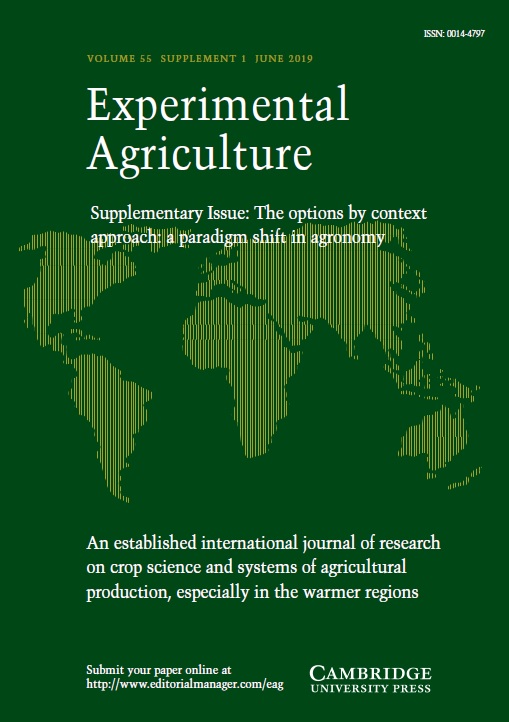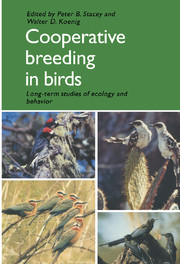Cooperative Breeding in Vertebrates
Studies of Ecology, Evolution, and Behavior
£41.99
- Editors:
- Walter D. Koenig, Cornell University, New York
- Janis L. Dickinson, Cornell University, New York
- Date Published: June 2018
- availability: Available
- format: Paperback
- isbn: 9781107642126
£
41.99
Paperback
Other available formats:
Hardback, eBook
Looking for an inspection copy?
This title is not currently available on inspection
-
Cooperative breeders are species in which individuals beyond a pair assist in the production of young in a single brood or litter. Although relatively rare, cooperative breeding is widespread taxonomically and continues to pose challenges to our understanding of the evolution of cooperation and altruistic behavior. Bringing together long-term studies of cooperatively breeding birds, mammals, and fish, this volume provides a synthesis of current studies in the field. The chapters are organised by individual studies of particular species or (in the case of mole-rats) two closely related cooperatively breeding species. Each focuses not only on describing behavior and ecology but also on testing evolutionary hypotheses for the form and function of the diverse and extraordinary cooperative breeding lifestyles that have been discovered. This unique and comprehensive text will be of interest to graduate students and researchers of behavioral ecology and the evolution of cooperation.
Read more- Features contributions from leaders in the field to provide the definitive synthesis of current studies of cooperative breeding
- The chapters describe the behavior and ecology of a range of species as well as testing evolutionary hypotheses for the form and function of diverse and fascinating cooperative breeding lifestyles
- A much-needed update to earlier volumes focused on cooperative breeding, providing readers with studies involving a range of taxa and taking advantage of modern genetic techniques
Reviews & endorsements
'… fledgling graduate students in ornithology will find a treasure trove of information on key species, and behavioral ecologists and conservation biologists will not be disappointed. This work is highly recommended for college and university libraries.' B. E. Fleury, Choice
See more reviews'… the publication of [a] well written … book on long term studies of vertebrate cooperative breeding is timely and important. This is a 'must-read' for new and old students of behavioral ecology.' Loren D. Hayes, The Quarterly Review of Biology
'As Koenig et al. point out, one advantage of not finding a 'grand synthesis' is that there remains huge opportunity to expand our knowledge of cooperative breeding in these and new species. This book is a great stepping stone for that pursuit, and will not only be an indispensable resource for those in the field, but is also a captivating read for those of us who aren't.' Ken A. Otter, International Society for Behavioral Ecology Newsletter
Customer reviews
Not yet reviewed
Be the first to review
Review was not posted due to profanity
×Product details
- Date Published: June 2018
- format: Paperback
- isbn: 9781107642126
- length: 401 pages
- dimensions: 248 x 190 x 28 mm
- weight: 0.83kg
- contains: 181 b/w illus. 12 colour illus. 32 tables
- availability: Available
Table of Contents
List of contributors
Introduction Janis L. Dickinson and Walter D. Koenig
1. Siberian jays: delayed dispersal in the absence of cooperative breeding Jan Ekman and Michael Griesser
2. Western bluebirds: lessons from a marginal cooperative breeder Janis L. Dickinson, Çağlar Akçay, Elise D. Ferree and Caitlin A. Stern
3. Long-tailed tits: ecological causes and fitness consequences of redirected helping Ben J. Hatchwell
4. Red-cockaded woodpeckers: alternative pathways to breeding success Jeffrey R. Walters and Victoria Garcia
5. Florida scrub-jays: advantages of large territories and group-defense in a fire-maintained habitat John W. Fitzpatrick and Reed Bowman
6. Carrion crows: family living and helping in a flexible social system Vittorio Baglione and Daniela Canestrari
7. Southern pied babblers: the dynamics of conflict and cooperation in a group-living society Amanda R. Ridley
8. Superb fairy-wrens: making the worst of a good job Andrew Cockburn, Lyanne Brouwer, Nicolas Margraf, Helen L. Osmond and Martijn van de Pol
9. Chestnut-crowned babblers: dealing with climatic adversity and uncertainty in the Australian arid zone Andrew F. Russell
10. Bell miners: kin-selected helping decisions Jonathan Wright and Paul G. McDonald
11. Superb starlings: cooperation and conflict in an unpredictable environment Dustin R. Rubenstein
12. Seychelles warblers: complexities of the helping paradox Jan Komdeur, Terry Burke, Hannah Dugdale and David S. Richardson
13. Acorn woodpeckers: helping at the nest, polygynandry, and dependence on a variable acorn crop Walter D. Koenig, Eric L. Walters and Joseph Haydock
14. Taiwan yuhinas: unrelated joint-nesters cooperate in unfavorable environments Sheng-Feng Shen, Hsiao-Wei Yuan and Mark Liu
15. Guira cuckoos: cooperation, infanticide, and female reproductive investment in a joint-nesting species Regina H. Macedo
16. Cichlid fishes: a model for the integrative study of social behavior Michael Taborsky
17. Meerkats: cooperative breeding in the Kalahari Tim Clutton-Brock and Marta Manser
18. Banded mongooses: demography, life history, and social behavior Michael A. Cant, Hazel J. Nichols, Faye J. Thompson and Emma Vitikainen
19. Damaraland and naked mole-rats: convergence of social evolution Chris G. Faulkes and Nigel C. Bennett
20. Synthesis: cooperative breeding in the twenty-first century Walter D. Koenig, Janis L. Dickinson and Stephen T. Emlen
Taxonomic index
Subject index.
Sorry, this resource is locked
Please register or sign in to request access. If you are having problems accessing these resources please email [email protected]
Register Sign in» Proceed
You are now leaving the Cambridge University Press website. Your eBook purchase and download will be completed by our partner www.ebooks.com. Please see the permission section of the www.ebooks.com catalogue page for details of the print & copy limits on our eBooks.
Continue ×Are you sure you want to delete your account?
This cannot be undone.
Thank you for your feedback which will help us improve our service.
If you requested a response, we will make sure to get back to you shortly.
×
